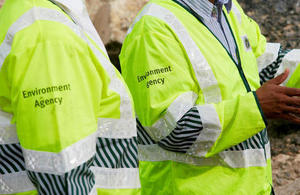14,199 more NHS nurses and nursing student acceptances rise by 23%
The number of nurses in the NHS in England increased by 14,199 compared to last year, and the number of doctors has risen by 9,283, figures published today up until the end of June show.
All professionally qualified clinical staff, paramedics and support to clinical staff are now at record levels.
Alongside this, the latest UCAS figures out today show there are record numbers of people accepting a place to study nursing in England, with a 23% increase on the same time last year, or 5,000 more student nurses.
Responding to today’s NHS workforce statistics, Health and Social Care Secretary Matt Hancock said:
The NHS is there for us all in our hour of need, and the safety of our health and social care staff that support us day in, day out is my top priority. It is fantastic to see over 14,100 more nurses and over 9,200 more doctors working in the NHS, putting it in the best possible position to continue tackling this global health emergency.
With the latest UCAS figures out today showing a record 23% rise in people accepting places on nursing courses in England, we are also well on our way to delivering 50,000 more nurses by the end of this Parliament.
In July the NHS People Plan set out how the NHS will put staff wellbeing at its heart with a new recruitment, retention and support package. It sets out practical support for wellbeing such as safe spaces to rest and recuperate, wellbeing guardians and support to keep staff physically safe and healthy.
The figures for June include some former healthcare professionals who bravely volunteered to return to the frontline during the pandemic. June figures also show that 649 returners were identified, of which, there are 102 doctors and 165 nurses and health visitors. Not all returners are reflected in the monthly workforce stats as they could have been employed on Fixed Term, Honorary or Bank contracts, or via NHS Professionals.
Background information
Today NHS Digital has published their monthly NHS workforce data for June 2020
Over the last year (June 2019 to 2020) the number of nurses has gone up by 14,199, from 281,619 to 295,818.
Over the last year (June 2019 to 2020) the number of doctors has gone up by 9,283, from 111,860 to 121,142.
Student nurses do not have full registration with the NMC, and so are counted as ‘support to clinical staff’. They are not included in the ‘nurses’ count. Medical students are on the same standing as Foundation 1 doctors, and so are counted as ‘doctors’ in the statistics.
NHS Professionals is an organisation in the United Kingdom that supplies temporary staff to the National Health Service.

